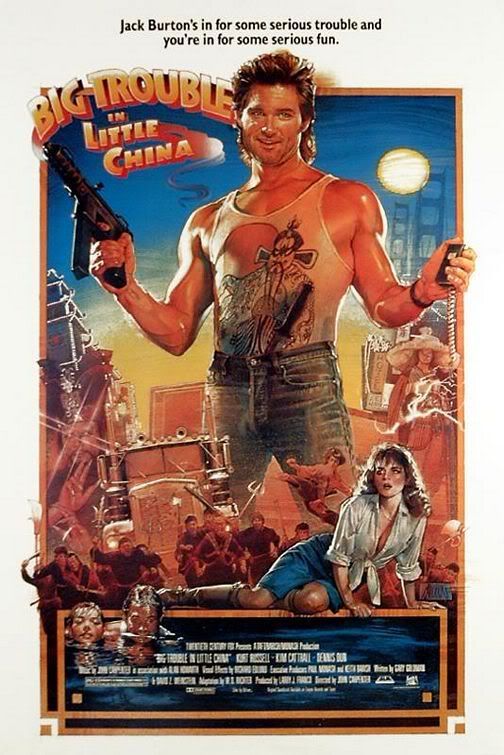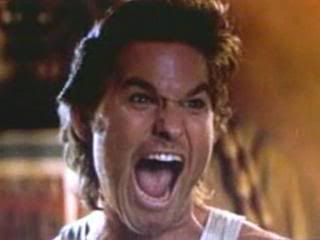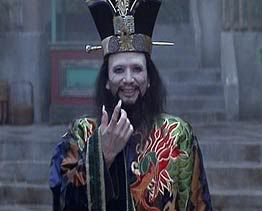Every once in a while, I’m made aware of an opportunity that makes me feel like an actual professional critic. Much like Salt, my bros of the taped glasses over at Geekadelphia hooked me up with passes to see Immortals last night before its release to the general public. Considering my tendencies towards breathing new life into old myths, I was excited. While the trailers pretty much sold the film as a re-dressed 300, I was curious to see what director Tarsem Singh Dhandwar did with some of the oldest storytelling material in the world.
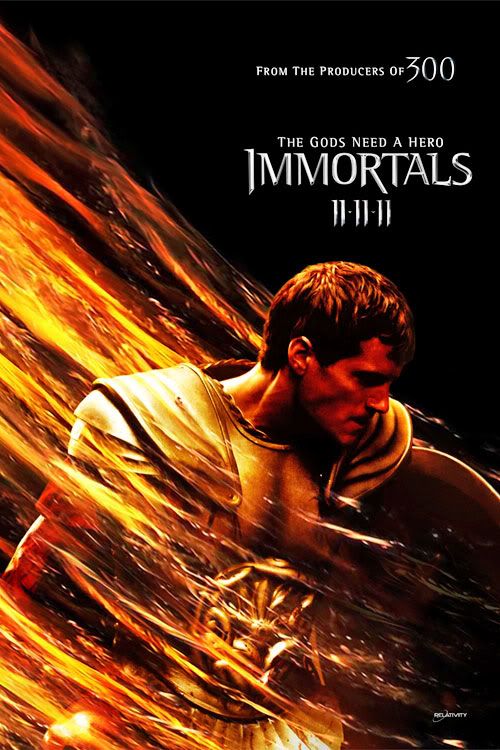
Our story revolves around Theseus, humble son of a dispossessed woman in a Hellenic village by the sea where he trains as a warrior to protect her. He doesn’t have much faith in the gods, even as they look down from Olympus on mankind while under strict laws from Zeus not to directly intervene. Indirect intervention is fine, but doing too much in a godly fashion would threaten to rob humans of their free will. There is only one circumstance in which this law is to be broken: if the Titans, sworn enemies of the Olympian gods imprisoned in Tartarus, are ever released. That is the plan of Hyperion, diabolical king at the head of the vicious Heraklion army, who would see the gods slain and he as the sole ruler of humanity… but not if Theseus has anything to say about it.
Tarsem Singh Dhandwar’s first film was The Cell, a crime drama from 2000 that is remembered far more for its unique visual style than any of the story or actors involved. Many of his images, while surreal and otherworldly, were shot so cleanly and with such aplomb and definition that they could be framed and considered works of art in and of themselves. So it is with Immortals, only this time around, the works of art are in motion more often than not.
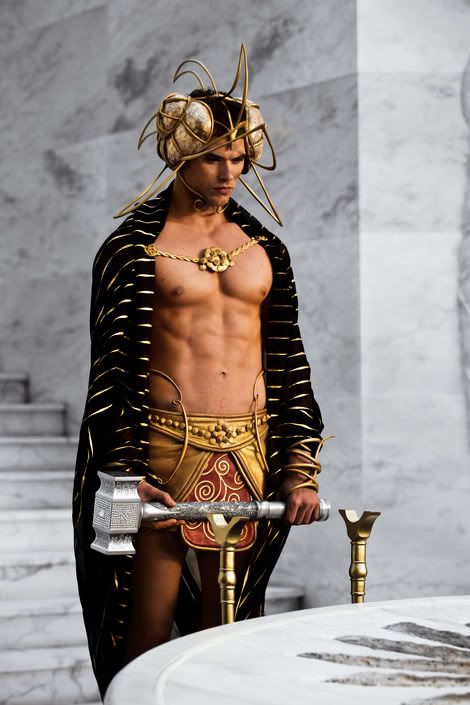
Seriously, if you were going to live forever, wouldn’t you want to look this good?
It’s the decisions the director makes that stand out in the film. For one thing, instead of the usual stable of established, operatic actors, the Olympian gods are played by beautiful young people in peak physical shape, and the gentlemen especially are dressed in minimalist costumes to show this off. This lends itself well to the depictions we see in Greek sculpture and art: bearded as they often are, the Greeks were not shy about their bodies. Nor is Immortals shy when it comes to violence, but again the director sets himself apart. It is only when we see these golden gods in action that the slow motion so familiar to fans of 300 and other movies of its ilk comes into play. Violence at the hands of humans is not dressed up in fancy camera work or tricks of post-production other than ribbons of blood and thrusting spear-points; rather, it’s presented with visceral intensity and earnestness that definitely demands attention.
As for the story itself, we have something of a mixed bag. Reinterpretations of Greek myth are certainly nothing new, and the writers of Immortals do make a few interesting decisions, such as keeping the war between the Olympian gods and the Titans on a human scale and the things done with Theseus’ battle with the “Minotaur.” And there was one bit in the plot that I honestly didn’t see coming. The script, however, is far more inconsistent than the quality of the visuals. There were a few points in the plot where I had unanswered questions or sensed a bit of a hole, while at others I felt the characters could have used less talking and more showing through action and expression. Hyperion especially stood out to me as something of a problem, despite Oscar-winner Mickey Rourke giving him an imposing physical presence.
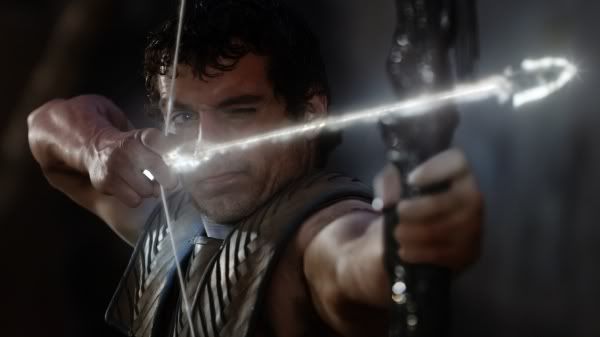
It’s a dumb pun, but it works: Cavill looked pretty super even if his performance wasn’t.
This is not to say the acting was terrible; I’d say it was about average for material such as this. I’m not sure why Mickey Rourke spends half his time seeming so bored with the goings-on, but I’m willing to chalk that up to the script having Hyperion all but bellow “I AM A BAD GUY AND I WILL DO BAD GUY STUFF NOW”. Henry Cavill as Theseus is perfectly passable and Freida Pinto as the Oracle does all right, but I felt their little romance sub-plot was a little rushed. The Olympians, Luke Evans and Isabela Lucas in particular, brought a measure of humanity to their characters and presented their godliness with sufficient gravitas, so I guess I can’t complain too much about this part of the film. They struggle to elevate the mediocre script and never overshadow the visuals with scenery-chewing or laughable execution.
While certainly not a perfect movie, Immortals delivers an experience that’s enjoyable and engaging without feeling pandering or terribly rushed. The clean, smart direction and bold, lush visuals go a long way to get the audience past any narrative issues that crop up over the course of the film. At no point did I feel confused as to what was going on, as can be the case in some other action flicks, and it never felt like the movie was talking down to me. A little more polish on the script and more solid performances from some of the cast would have made the movie truly fantastic instead of merely impressive. But if the only real complaint I can make about Immortals is “there wasn’t enough of it”, I guess you can take that as a recommendation.
Stuff I Liked: For all the negativity out there regarding 3D, this movie did it just about perfectly. Gods played by young, beautiful people instead of well-established, older actors. No technology that felt overtly anachronistic.
Stuff I Didn’t Like: A little sloppiness in the plotting and screenwriting. Mickey Rourke looking bored more than anything else. Other actors not quite selling the melodrama. Only faltering attempts at scale in terms of size and distance. The romance sub-plot moves a bit too quickly.
Stuff I Loved: The stunning visuals, the very canny use of some of the action tropes that drew in the 300 crowd, extremely well-shot action and a Greek myth that feels as lurid, sensual and bombastic as a Greek myth should.
Bottom Line: The very clever and skilled direction of Immortals lifts it just far enough out of mediocrity for me to give it a recommendation. It won’t win any prizes or hearts for its script or acting, but its blend of unique original flair and old-school Greek mythology does delight the eyes and get the blood pumping. A solid, above-average period action flick.




